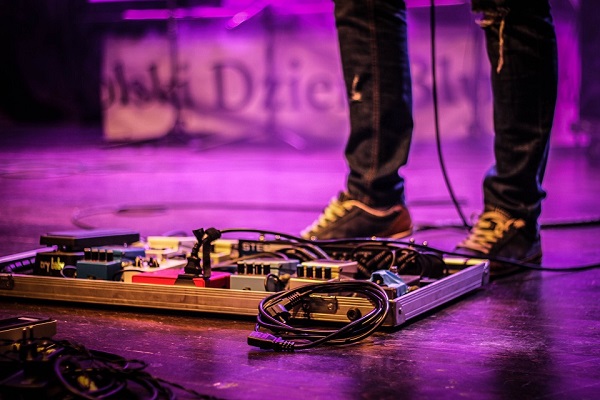
Guitar pedals are often used by guitarists to add effects to their playing. However, bassists are not common users. The simple answer to the question whether they can use guitar pedals is yes. Guitar pedals can be used on bass without any issues. Unfortunately not all guitar pedals work well on the bass guitar.
How commonly are guitar pedals used on bass?
It is not common to find a bass player hooked up to a guitar pedal. The lack of popularity is a consequence of the desire of most bass players to prefer clean and simple bass tones. This is all you need to play many styles of music. Unfortunately, most bass players are happy to limit their approach to playing for as long as it gets the job done. Luckily, daring bass plates push against the norm and encourage the use of guitar pedals. As a result, they explore potentially great tones.
Which pedals work well with the bass?
Pedals are used to achieve varied effects on guitar. However some of the guitar pedals are designed solely for the guitar. They enhance specific frequencies while giving subtle inconspicuous differences to others. Some guitar pedals cut out low frequencies to enhance the richness of the guitar sound. Although such guitar pedals are great for guitars, they may not perform well with bass guitars which mostly produce low frequency sound. Nonetheless, there are common guitar pedals that work well for bass and guitars. These pedals work perfectly fine on any frequency range. The pedals are used for vocals, bass, guitars or keyboards. Some of the pedals that work well with the bass include octave pedals, fuzz pedals, synth pedals, envelope filters and compressors.
- Guitar fuzz pedal; Fuzz is a unique distortion that can alter the vibe of anything you play on bass. The pedal delivers saturated tones and aggressive tones that add texture to your playing. Using a fuzz pedal on bass is fun.
- Octave pedals: The objective of the pedal is to double your tone an octave higher or lower. Basically if you play a 4-string bass you get an 8-string bass tone.
- Modulation: The effect is common with guitarists but not on bass. However, subtle use of modulation gives bass tones a unique edge. Modulation covers effects like flanger, phaser and chorus.
- Envelope filters: If you are into funky styles of music, envelope filters and auto-wahs are a worthy pursuit. The envelope filter reacts to how hard you hit the strings and offers some unique effects.
- Synth pedals: If you are looking to have fun with your bass, this is the pedal for you. It’s used to create organ sounds, pad sounds and extreme electronic sounds. Extreme use is fun but the pedal can be used in subtle ways to enhance tone texture.
The bass pedal
Since it can get hard to decipher which guitar pedal will work well for the bass, manufacturers have released bass pedal versions. These perform particularly well with low frequency sounds ensuring the effect your need is always delivered. The objective of bass pedals is to give authenticity to your bass sound despite the added effects. Moreover, you can push the pedal effects to the limit without losing the quality of sound. EQ bass pedals are optimized for the bass and deliver good results. Although some guitar pedals work extremely well for bass, they unfortunately do not match up to their bass versions. Particular pedals like the synth pedals and wah pedals are best used as bass versions.
The default option for bass players is to stay away from pedals. However, pedals make jamming fun. You explore fresh tones and pursue new ideas. If you are playing live, pedals can also create iconic bass tones that make for a memorable set. Moreover, use of pedals gives you a unique edge over other bass players and you are certain to stand out.





